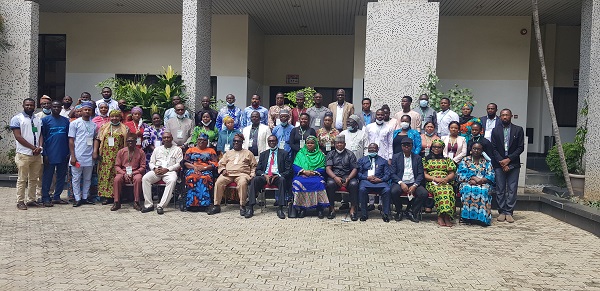
Stakeholders in the environment sector met today (August 19) to review and validate Nigeria’s long-term vision (LTV) as part of efforts to reduce the nation’s greenhouse gas (GHG) emission to aid in achieving its climate change targets.
Speaking at the opening ceremony of the one-day national stakeholders’ workshop for the validation of Nigeria’s LTV under the Paris Agreement organized by the department of climate change (DCC) under the Ministry of Environment with support from 2050 Pathways Platform in Abuja, the acting director, DCC, Mrs. Halima Bawa-Bwari, said the presence of key supportive stakeholders at the exercise was quite encouraging and a sign that the future towards low emission development strategies (LEDS) in Nigeria was bright and promising.
She pointed out that being a signatory to the Paris Agreement and SDGs implied that the country seeks support of global efforts to urgently address the challenges of climate change.
Bawa-Bwari stated that towards achieving these global commitments, the country had advanced in its effort of developing its Long-Term Vision 2050, with the hope that the vision would promote sustainable development and guarantee a climate proofed economy through multi-stakeholders’ engagement across multiple sectors that included the bioeconomy, blue, green and food economies that also align with critically important SGDs like ending poverty, access to affordable energy and zero hunger.
“With this developed strategy document, Nigeria intends to pursue a low emission development path that will grow her economy, in a way that achieves economic-wide reduction of net GHG emission compared to business-as-usual trajectories; through incorporating LEDs type concept into its national development planning mechanism for green growth, sustainable development and climate change resilience and response.
“While changes at this scale will be seen over long-term, it is advocated that incorporating LEDs type concept into its national development planning mechanism will require sectors specific improvement; highlighting the importance of incorporating policy measures and/or financial investments in and contributions to the delivery of low emission sector specific projects and plans, including strategic monitoring and assessment activities,” she added.
In her goodwill message, the regional manager for the NDC partnership support unit, Margaret Barihaihi, expressed satisfaction that Nigeria was taking yet another step of improving their low carbon climate and resilient strategy.
“I am really pleased to be here on behalf of the partnership to be part of this important discussion which is the beginning of the process of validating the long-term vision. It is really great and I still congratulate Nigeria for the submission of the updated NDC on time and we are looking forward to see how this process of the long-term planning can align with the NDC targets,” she said.
“From the partnership we are really standing alongside and will continue with the support of this process together with the support for the implementation of the NDCs to see how the two can really align and capture Nigeria’s real needs,” she stated.
In his presentation on the ‘Global context on long-term low-GHG emission development strategies’, the executive director, 2050 Pathways Platform, Richard Baron, highlighted the validation was in line with Article 4.19 of the Paris Agreement which states that ‘all parties should strive to formulate and communicate long-term low GHG emission development strategies.’
Baron congratulated Nigeria on the laudable steps it is taking in reducing its GHG emission, saying the platform would support the nation on its quest to reduce the negative effects of climate change.


